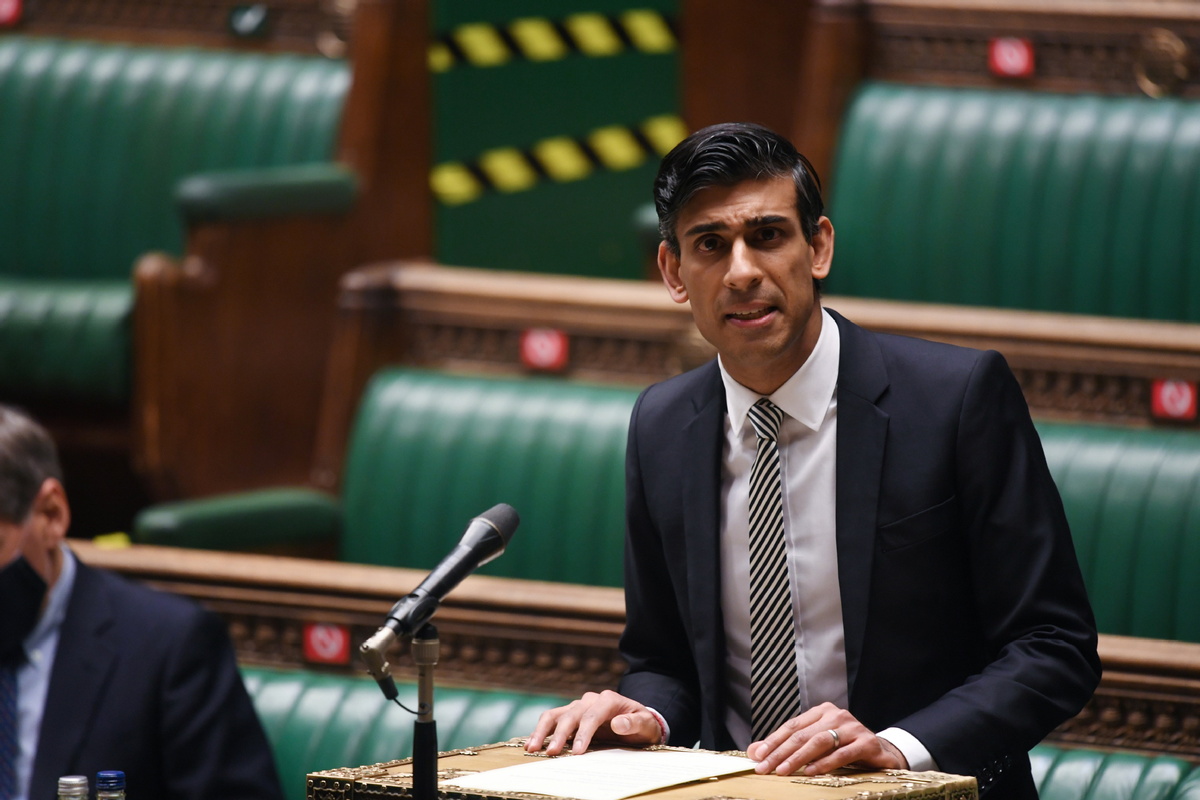UK govt buys stake in virus-hit startups
By EARLE GALE in London | China Daily Global | Updated: 2021-02-04 09:34

The British government has become a direct investor, and minority shareholder, in a wide range of companies as a result of a bid to keep businesses afloat during the novel coronavirus pandemic.
According to the Financial Times newspaper, the Treasury, which is the government department responsible for managing the country's finances, now holds a stake in enterprises as diverse as a water-efficient toilet-maker and a rural broadband provider.
The foray into venture capitalism came about through the government's Future Fund, which Chancellor of the Exchequer Rishi Sunak launched in May as a vehicle to help struggling entrepreneurs with an injection of capital during the dark days of the pandemic's first wave in the United Kingdom.
Through the program, the government offered loans, via the British Business Bank, from a 1-billion-pound ($1.36 billion) fund to more than 1,000 British startups.
Companies that successfully secured loans could then choose to either pay them back or accept the government as a minority shareholder.
The Financial Times said, with the window for applications for Future Fund loans now closed, some companies have already welcomed the government on board as a holder of a minority equity stake.
The paper said the Cornwall-based broadband provider Wildanet has converted its 200,000-pound Future Fund loan into an equity stake.
It quoted Chief Executive Ian Calvert as saying: "We thought Rishi Sunak could turn up for a board meeting. The Future Fund was a very useful tool as it allowed us to keep on track."
The BBC said the loans were particularly popular with startups that had borrowed heavily in order to grow rapidly and that were running at a loss when the pandemic hit, making them ineligible for other government business support programs.
The initiative called for the government to provide loans of between 125,000 pounds and 5 million pounds to individual companies that met certain criteria and that could attract private investment of the same value.
The Telegraph newspaper noted that the government has repeatedly refused to publish a list of the companies it has helped through the program but the paper said many will become known in the coming weeks, as businesses report their annual financial results.
The Telegraph said last year that Stephen Page, chief executive of the seed investor SFC Capital, had said government investment during the pandemic had meant "zombies have stayed in business", suggesting that some companies should not have been helped.
But the British Business Bank said in a statement it had carefully selected companies before offering loans and would "continue to work with government to develop a long-term strategy to effectively manage the equity portfolio".
City AM, a free business newspaper, said its research found that startups at the earliest stage of development had missed out on funding through the Future Fund. It said the government ended up helping almost 1,200 companies with 1,337 investments, but only 28.5 percent of companies were at the seed stage, which was the stage the government most wanted to help.
























